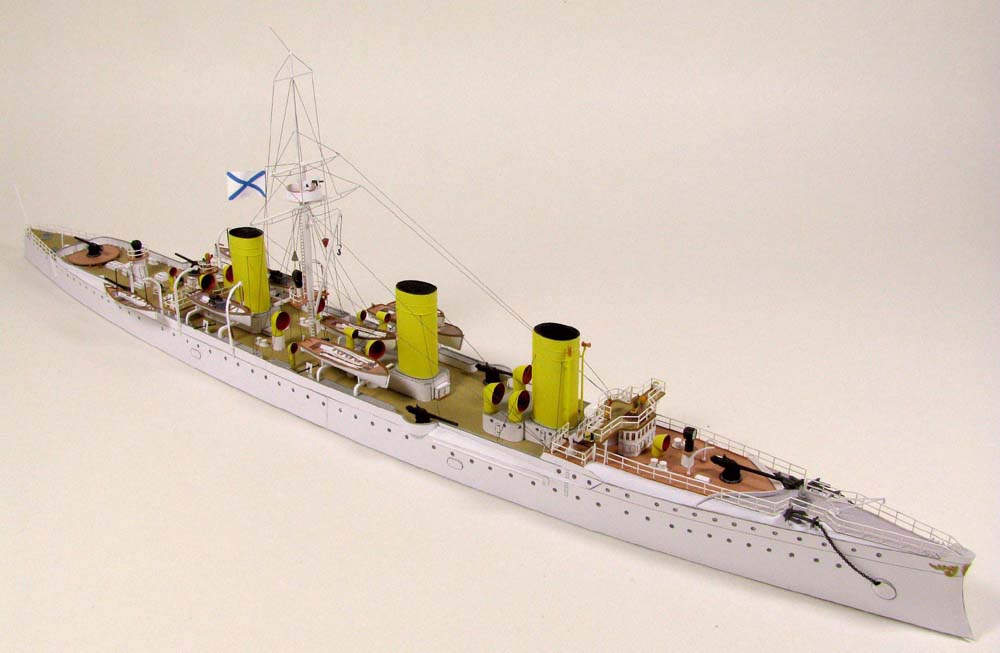
1/250 Protected Cruiser Novik (JCS)
|
by Peter Wulff |

1/250 Protected Cruiser Novik (JCS)
The Model:
The card model is scaled 1:250 and is sporting the white & buff
color scheme common to warships in peace time by then. Designed by JSC
and published already in 1998, it is one of the older models of this house.
Since the original kit is not that much detailed, it offered a lot of
creative opportunities - and i made good use of it:
The entire main mast assembly is scratch-built, as well as all davits,
boat crutches, gun mounts and entrance hatches. Parts from other card kits
were used to replace most of the often simplified components, like the
searchlights, boats and launches. For the main guns i used the barrel set
for the HMS Norfolk (1:400) of the same publisher and common LC sets for
the railings and stairs.
The History:
The cruiser was part of an extensive naval shipbuilding program of
the russian fleet in the late 1890´s. The goal was to counterbalance
the growing influence and military strength of the imperial Japan in the
Far East. Since the russian maritime industry could not stem the entire
fleet program on its own, it was a common practice of the navy, to have
different kinds of warships built abroad. By this way the cruiser NOVIK
came into being. The contract for the ship was given to the german Schichau
shipyard at Danzig (nowadays Gdansk) After completion, the cruiser proofed
to be one of the fastest ships at that time. Quite impressed by NOVIK´s
performance, the Admiralty ordered 2 more ships of similiar design, to
be built on russian slipways. These vessels were to become the Isumrud
and Schemchug.
NOVIK played an active role during the naval engagements of the russo-japanese
war in 1904. After the final battle between the russian and japanese fleet,
following the breakout from Port Arthur in late 1904, NOVIK escaped to
german held territory Kiatschou among other ships at first, but evaded
internment and steamed towards Wladiwostok. Surprised by japanese arnoured
cruisers during coaling on the Sachalin coast, the cruisers crew scuttled
their vessel after a lost artillery duell. Later the main guns were removed
from the wreck and used as shore batteries. The japanese raised and repaired
the cruiser later on. Named SUZUYA, the cruiser had a second life as Aviso
under the flag of its former foe. Finally declared obsolete by 1913, the
ship was broken up by then.
